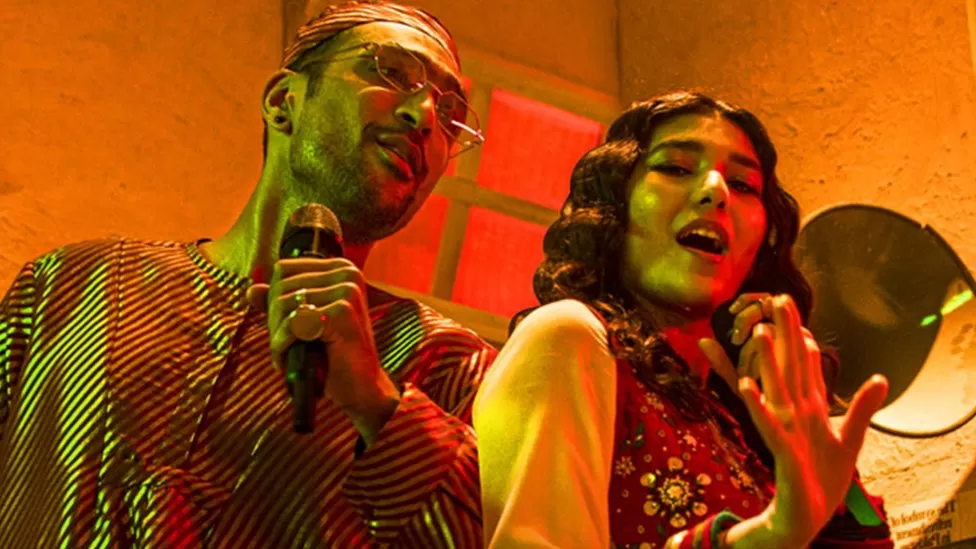Indian netizens have officially lost it at Bollywood after their latest attempt at a remake of a popular song went awry.
Originally sung by Ali Sethi and Shae Gill, the quirky number ‘Pasoori’ featured in Coke Studios Pakistan – the country’s longest-running music show. An Indian version of the song released to mixed reviews last week, as part of the soundtrack of the Bollywood film, Satyaprem Ki Katha. There was a lot of excitement around its release – as the new version features Arijit Singh, one of India’s biggest playback singers in recent years and Tulsi Kumar. Sethi himself penned it along with Indian writer Gurpreet Saini. While few people were happy, many listeners found the new rendition unnecessary, and that it failed to capture the authenticity of the original.
Bollywood’s practice of remaking classic songs has faced significant backlash recently, with critics and audiences questioning the creative integrity and commercial motivations behind these remakes. Despite the obvious backlash, Bollywood continues to delve into the realm of remixes and remakes, sparking a debate about artistic originality versus commercial viability.
The familiarity of a hit song can generate buzz, attract audiences, and even increase the chances of a film’s soundtrack becoming a chart-topper. From a business standpoint, this approach reduces the risk associated with experimenting with new and untested music. Producers are often inclined to capitalize on the popularity of well-known tunes, as they believe it guarantees a certain level of success and market appeal.
Critics argue that the increasing number of remakes in Bollywood indicates a lack of creativity in the industry. Rather than focusing on creating new and modern music, filmmakers are reusing existing songs. This trend has raised concerns about the industry’s stagnation and reliance on nostalgia instead of promoting fresh talent and original compositions. “I was part of my college’s music group, and many of my teammates now work in music full-time, ” says Summit, 26. “Many of them have such great potential, they were stars in college but are struggling now. It’s not that they’re not good enough, they just aren’t getting enough opportunities. Seeing them struggle despite being original while Bollywood keeps releasing these horribly re-packaged songs is infuriating.”
The audience has a very polarizing response to this remake, too. “I don’t think I have met a single person who liked the (Pasoori) remake so far,” says Riddhika, 19, who studies music herself, stating that the new music failed to resonate with her. “It just feels so unnecessary, they could have just used the original song — especially when the creator was already on board and okay with it.”
Music director Rochak Kohli, also a compositor of the song opened up to News18 about the backlash, stating that while the initial reaction to the song’s announcement was negative, as people are listening to it more they find it “isn’t as bad as they had expected”.
While some viewers enjoy the nostalgia and find comfort in the familiar tunes, others feel a sense of disappointment and betrayal when a beloved classic receives a makeover that doesn’t live up to their expectations. The backlash against remakes has gained momentum, with audiences expressing their discontent on social media platforms and through various online forums. This public outcry has led to debates about artistic integrity and the need for the industry to strike a balance between commercial viability and originality.
Finding a middle ground where remakes are done with artistic integrity, respect for the original material, and a focus on delivering a fresh experience for audiences is crucial. While the financial incentives of remakes are understandable, many believe that filmmakers need to prioritize the cultivation of original content that resonates with the evolving tastes and preferences of the audience. The audience is making it rather clear that they want original content – so why do producers still insist on remaking classics?





Warning: Use of undefined constant ‘url’ - assumed '‘url’' (this will throw an Error in a future version of PHP) in /var/www/html/wp-content/themes/theissue/functions.php on line 143